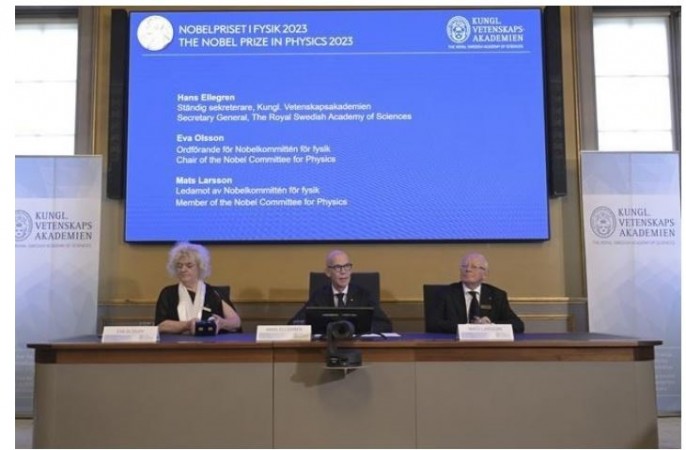
Three distinguished scientists, Pierre Agostini, Ferenc Krausz, and Anne L'Huillier, have been awarded the prestigious 2023 Nobel Prize in Physics for their groundbreaking work in the field of experimental techniques that produce attosecond bursts of light. These innovative methods have significantly advanced our understanding of electron dynamics within matter, announced the Royal Swedish Academy of Sciences on Tuesday.
This year's Nobel Prize in Physics, endowed with an increased sum of 11 million Swedish crowns (equivalent to approximately $1 million), underscores the remarkable contributions of these trailblazing physicists.
The Nobel Prizes, established according to the wishes of the renowned dynamite inventor and entrepreneur Alfred Nobel, have been recognizing outstanding achievements in science, literature, and peace since 1901, albeit with a few brief interruptions. These accolades stand as arguably the most prestigious honors for scientists worldwide.
While the Nobel Peace Prize often commands significant attention for its occasionally controversial selections, the Nobel Prize in Physics has frequently captured the spotlight, honoring luminaries like Albert Einstein and celebrating scientific breakthroughs that have fundamentally transformed our perception of the universe.
In the previous year, Alain Aspect, John Clauser, and Anton Zeilinger were awarded the Nobel Prize in Physics for their groundbreaking contributions to the field of quantum entanglement. This phenomenon, where two particles maintain a mysterious connection regardless of the vast distances between them, challenged even the brilliant mind of Albert Einstein, who famously dubbed it "spooky action at a distance."
The announcement of the Nobel Prize in Physics heralds the beginning of a series of announcements throughout the week, including those for chemistry, literature, peace, and economics--the latter being a later addition to the original lineup.
Nobel Week - Prize Announcement for Physics: All You Need to Know